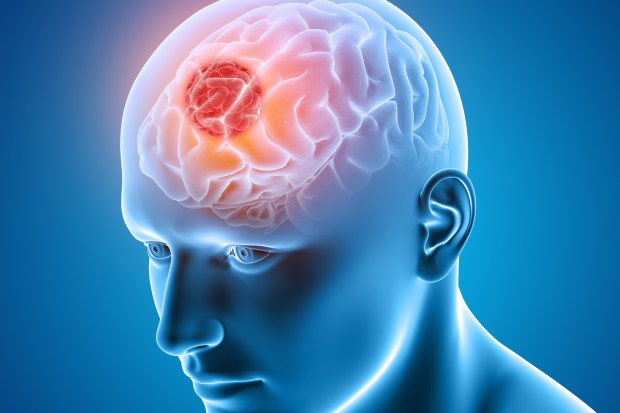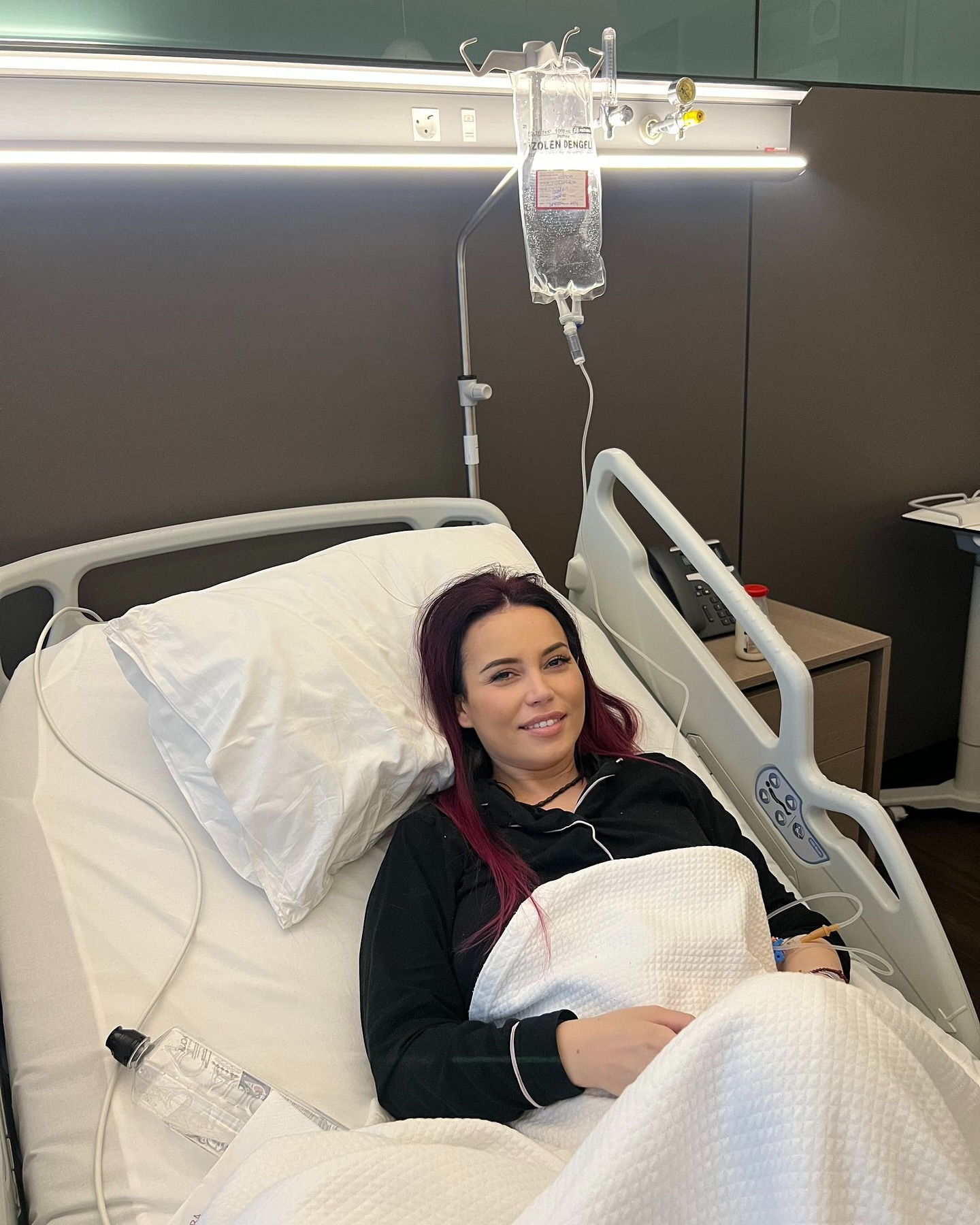A CELEBRITY make-up artist has died aged 35 from a brain tumour after tragically missing a common symptom.
Anca Molnar, who is known for her work with famous stars from Romania, passed away on Tuesday morning.
According to her close friend Alina Radi, influencer Anca had suffered with serious headaches for some time, but initially disregarded them.
It was only when the pain became so severe it was dramatically affecting her daily life that she went to the doctor over a year ago.
Anca was shocked to discover she had a brain tumour.
Her doctors told her there was little to be done due to the progression of the tumour.
However, she flew to Turkey for intensive chemotherapy treatments and two brain surgeries.
Alina told local media: “She had been experiencing excruciating headaches more frequently.
“Initially, she didn’t think much of them, because that’s how we are, but she found herself struggling to carry out her daily tasks consistently.
“So, she decided to go for a specialised check-up.
“She told me she had a brain tumour.”
Anca is survived by her husband Claudiu and her funeral took place today in her hometown of Timișoara.
The make-up artist bravely shared regular updates about her health with tens of thousands of followers.
Shortly before her death, she shared a heartbreaking post with her fans, writing: “I came, I lived beautifully, and I left for another world.
“I fought as best as I could with all my strength.
“I leave you with gratitude for how beautiful my life was, and let my smile be a testament that I lived it to the fullest.
“I, Anca Molnar, have gone home. But from there, I will continue to watch over you always!
“Stay well and look for me among the stars. From time to time, I’ll wink at you!”
In March, The Sun told of how a mum-of-two, 38, died just months after experiencing a “tingly feeling” on her wedding day.
Michelle Noakes, from Devon, married the love of her life Simon in 2019 but was disturbed by a strange sensation in her hands and feet.
When Michelle’s symptoms rapidly progressed, she sought advice from her GP.
Months later, she was diagnosed with an aggressive and inoperable brain tumour.
She passed away in June of that year – 19 months after her diagnosis and just before her 40th birthday.
Her family has since raised more than £7,000 for Brain Tumour Research in her memory.
Louise Aubrey, community development manager at Brain Tumour Research, said: “We’re really grateful to Michelle’s family for their incredible support and generosity in her memory.”
She added: “Just 12 per cent of those diagnosed with a brain tumour survive beyond five years compared with an average of 54 per cent across all cancers, yet, just one per cent of the national spend on cancer research has been allocated to this devastating disease since records began in 2002.
“This has to change.”
The most common symptoms of a brain tumour

More than 12,000 Brits are diagnosed with a primary brain tumour every year — of which around half are cancerous — with 5,300 losing their lives.
The disease is the most deadly cancer in children and adults aged under 40, according to the Brain Tumour Charity.
Brain tumours reduce life expectancies by an average of 27 years, with just 12 per cent of adults surviving five years after diagnosis.
There are two main types, with non-cancerous benign tumours growing more slowly and being less likely to return after treatment.
Cancerous malignant brain tumours can either start in the brain or spread there from elsewhere in the body and are more likely to return.
Brain tumours can cause headaches, seizures, nausea, vomiting and memory problems, according to the NHS.
They can also lead to changes in personality weakness or paralysis on one side of the problem and problems with speech or vision.
The nine most common symptoms are:
- Headaches
- Seizures
- Feeling sick
- Being sick
- Memory problems
- Change in personality
- Weakness or paralysis on one side of the body
- Vision problems
- Speech problems
If you are suffering any of these symptoms, particularly a headache that feels different from the ones you normally get, you should visit your GP.
Source: NHS







